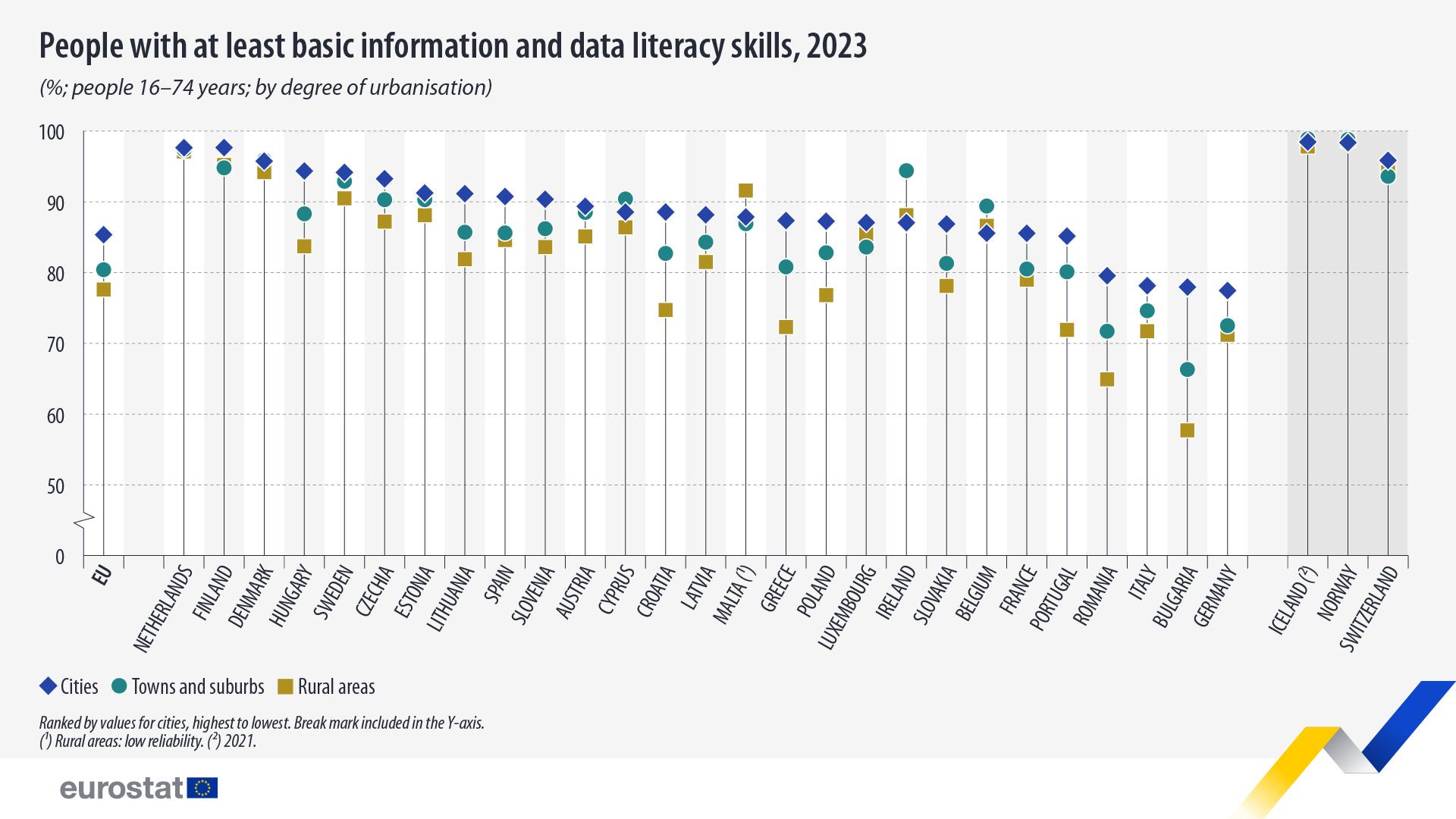2025-09-08
indicators

More than four out of five city residents in the European Union have at least basic information and data literacy skills, according to Eurostat data released to mark International Literacy Day. In 2023, 85.4% of people aged 16–74 living in EU cities were able to perform basic digital tasks such as finding, evaluating, and managing online information. The share was slightly lower among residents of towns and suburbs (80.4%) and rural areas (77.6%). Across most of the EU, urban populations reported the strongest levels of data literacy. In 22 member states, cities recorded the highest shares of digitally literate residents. However, four countries showed a different trend: Denmark (95.9%), Ireland (94.4%), Cyprus (90.4%) and Belgium (89.4%) reported the highest levels in towns and suburbs, while in Malta rural areas led (91.6%), although data reliability was low. The Netherlands recorded the highest literacy levels overall, with more than 97% of residents in cities, towns, and rural areas reaching at least basic data literacy. Finland (97.7%) and Denmark (95.8%) also ranked among the top performers in cities. By contrast, Germany (77.5%), Bulgaria (78.0%) and Italy (78.2%) reported the lowest shares in urban areas. Disparities were more pronounced outside cities. In rural areas, the lowest levels were observed in Bulgaria (57.7%), Romania (64.9%) and Germany (71.2%), while Finland (95.2%) and Denmark (94.2%) joined the Netherlands in leading the rankings. The findings highlight persistent digital divides across regions and countries, even as overall literacy levels remain high. International Literacy Day, established by UNESCO in 1967, is observed annually on September 8 as a reminder that literacy, both traditional and digital, is a fundamental human right and a foundation for dignity.

